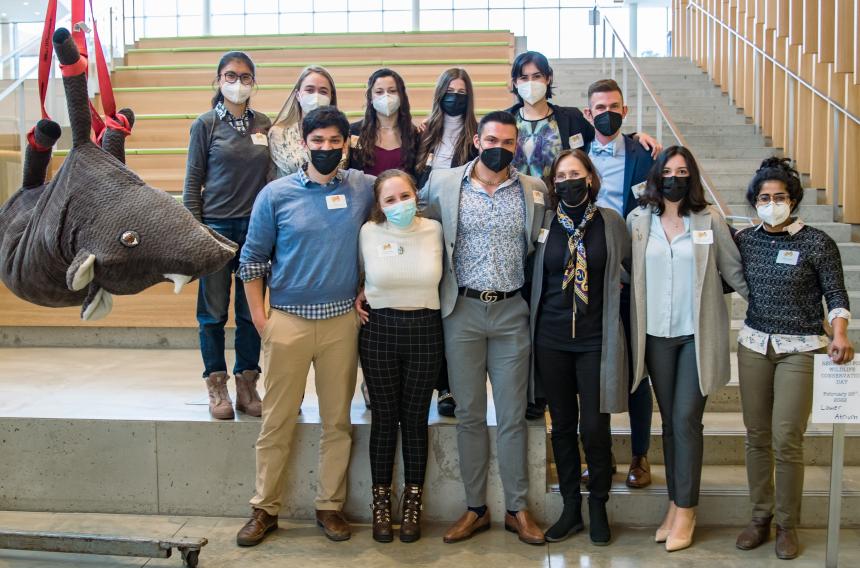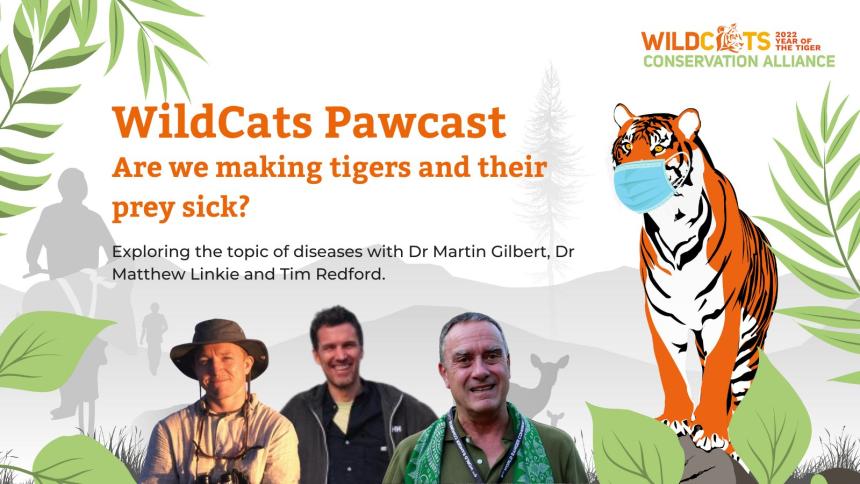In the News
April 12, 2022
In November 2019, my classmate, Hannah Padda, DVM ’22, and I were selected by Dr. Robin Radcliffe, a Cornell wildlife veterinarian and associate professor of practice in wildlife and conservation medicine, as two of six participants for his 2020 Engaged Cornell team....

April 07, 2022
The Cornell University College of Veterinary Medicine welcomes new faculty member Dr. Emma Houck, assistant clinical professor in the section of zoological medicine.

News
April 05, 2022
Matt Marinkovich, DVM '14, always had a passion for wildlife but was initially unsure as to what career path might suit him best. “I always knew I wanted to do something with wildlife or something conservation related, but it took a little while to find what that niche was, whether PhD or vet school....."

Announcement
March 29, 2022
Our scientists work around the world to improve public health outcomes, strengthen local and international food systems, and catalyze wildlife conservation efforts— all while training the next generation of One Health professionals. Find out how you can support making our world safer and healthier for all.

March 21, 2022
Cornell’s Zoo and Wildlife Society hosted its first Wildlife Conservation Day Feb. 26, a one-day symposium devoted to education and training for students with an interest in non-domestic species.

Blog
March 14, 2022
Cornell veterinary student Loren Lassiter, DVM '22, practices unique care in her wildlife preceptorship at the Fossil Rim Wildlife Center.

March 03, 2022
The Cornell Wildlife Health Center's Dr. Martin Gilbert collaborated with an international team of scientists to uncover the cause of a mysterious illness in an endangered wild tiger in Bhutan.

Podcast
February 25, 2022
Listen to our Wild Carnivore Health Specialist Dr. Martin Gilbert and other big cat conservationists discuss the impacts of infectious diseases on tiger populations in the first episode of WildCats Pawcast, a brand-new podcast from WildCats Conservation Alliance.

February 23, 2022
The bald eagle’s comeback is one of America’s most famous conservation success stories. But despite the boom in their numbers, bald eagles still face many threats, including poisoning from ingesting lead bullets.

February 21, 2022
Cornell veterinary student Michelle Greenfield, DVM '23, has leveraged her lifelong passion for aquatic animals to produce Aquadocs – the only aquatic veterinary podcast as well as a top 50 life sciences podcast on iTunes. Each show dives into a different facet of marine and aquatic veterinary health.
